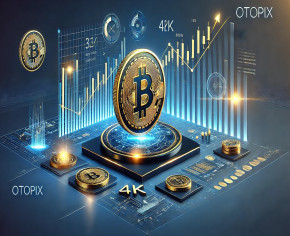
Bitcoin (BTC) is the first and most well-known cryptocurrency. It was created in 2009 by an anonymous individual or group known as Satoshi Nakamoto. Bitcoin operates on a decentralized network using blockchain technology, which is a public ledger that records all transactions across a network of computers.
Here are some key points about Bitcoin:
1. **Decentralization:** Bitcoin is not controlled by any central authority like a government or financial institution. Instead, it relies on a network of computers (nodes) that validate and record transactions.
2. **Blockchain:** Transactions are recorded on a public ledger called the blockchain. This ledger is maintained by a network of miners who solve complex mathematical problems to add new blocks of transactions to the chain.
3. **Limited Supply:** Bitcoin has a capped supply of 21 million coins. This scarcity is intended to create value and counteract inflation.
4. **Mining:** New bitcoins are created through a process called mining, where powerful computers solve cryptographic puzzles to validate transactions and add them to the blockchain. Miners are rewarded with newly created bitcoins for their efforts.
5. **Digital Gold:** Bitcoin is often referred to as "digital gold" because it shares some characteristics with gold, such as scarcity and a store of value. Many people invest in Bitcoin as a hedge against economic instability or inflation.
6. **Volatility:** The price of Bitcoin can be highly volatile, experiencing significant fluctuations in value over short periods. This volatility can be influenced by market demand, regulatory news, technological developments, and macroeconomic factors.
Bitcoin's impact extends beyond being a currency; it has also sparked a broader movement toward decentralized technologies and blockchain applications.



